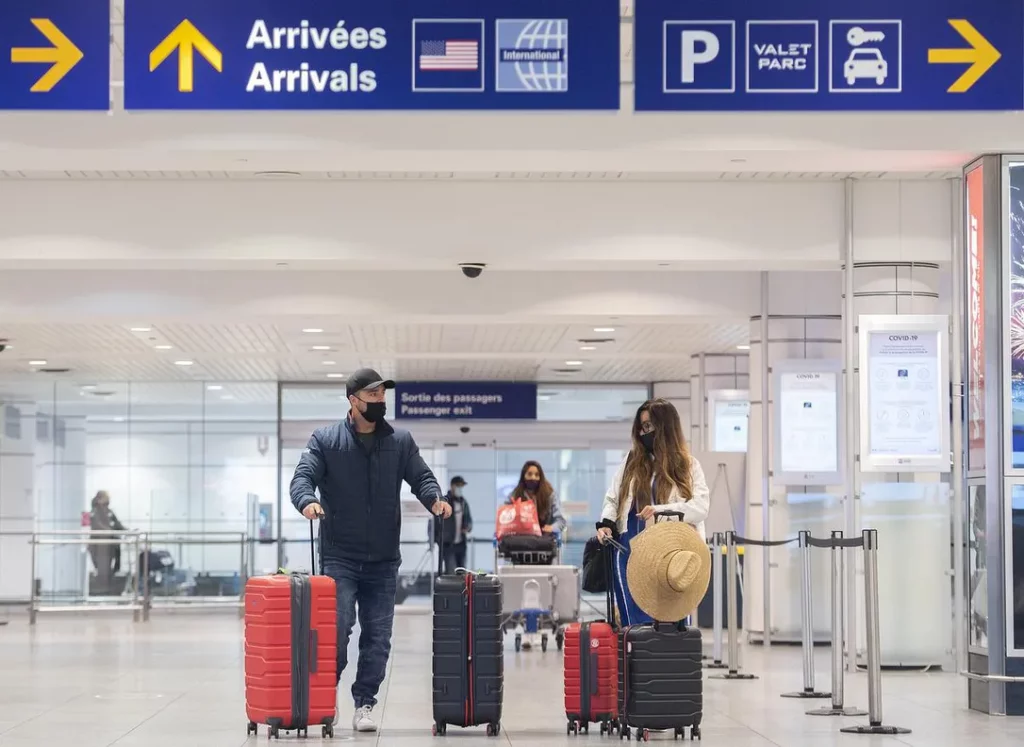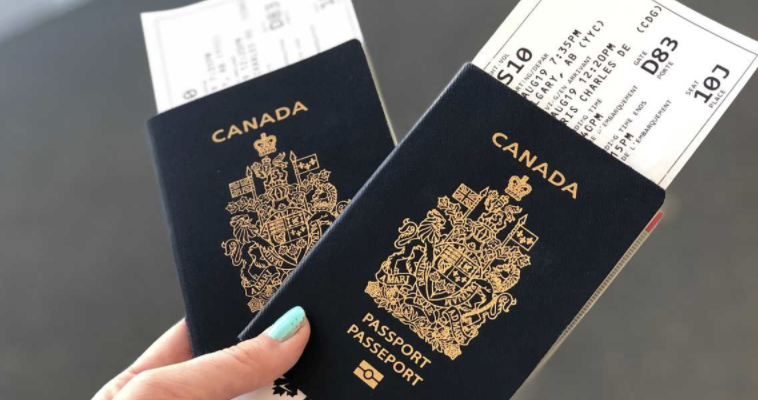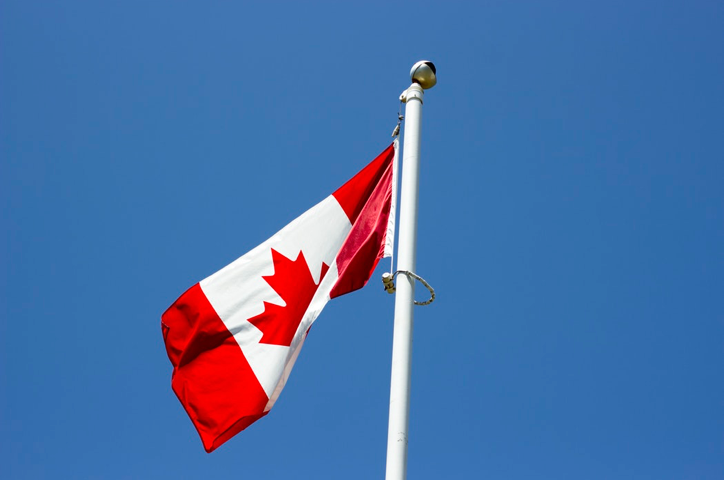The COVID-19 virus has, since its outbreak in North America, had much impact on the various aspects of our ordinary lives. The same goes for immigration and temporary visitor permit policies, which has since had some changes. This article explores these travel restrictions and exemptions in detail as they relate to the following categories of individuals

Exemptions to the travel restrictions
The following people may travel to Canada for an essential purpose:
- temporary foreign workers
- some international students
- some approved permanent residents
- immediate family members of a Canadian citizen or Canadian permanent resident (see below for more information)
- immediate family members with written authorization from the Government of Canada to reunite with a non-Canadian citizen or permanent resident living in Canada (see below for more information)
- transiting passengers (must remain in a Canadian airport to complete their connection)
- members of the Canadian forces, visiting forces, Department of National Defence and their immediate family members
- accredited diplomats and immediate family members (includes North Atlantic Treaty Organization [NATO], those under the United Nations Headquarters Agreement, other organizations)
- air and marine crew members
- French citizens who live in Saint-Pierre and Miquelon and have been in only Canada, the US or Saint-Pierre and Miquelon during the 14 days before the day they seek to enter Canada
- any person who does not pose a significant harm to public health, in the opinion of the Chief Public Health Officer of Canada, and who will provide an essential service while in Canada
- any person whose presence in Canada is in the national interest, in the opinion of the Minister of Immigration, Refugees and Citizenship; Public Safety and Emergency Preparedness; or Foreign Affairs
- any person who is coming at the invitation of the Minister of Health for the purpose of COVID-19 assistance
- any person whose purpose is to make medical deliveries
An immediate family member is defined as a
- spouse or common-law partner
- dependent child
- dependent child of a dependent child
- parent or step-parent
- guardian or tutor
The effects of COVID-19 on Travel to Canada after a conviction
Please note that these new restrictions prohibiting foreign nationals include U.S. nationals from entering Canada for non-essential travel.
Travellers with prior convictions who have family members who hold Canadian citizenship OR permanent residency:
A foreign national who is an immediate family member of a Canadian citizen or permanent resident is exempt from the travel restrictions and permitted to travel to Canada if they have the required travel documents. However, the caveat: You must show that you’re coming to Canada for essential reasons and not reasons that are optional or discretionary, such as tourism, recreation or entertainment.
Where the foreign national is a child, age and dependency is a factor. However, note that a foreign national who is an adult child of a Canadian citizen or permanent resident residing in Canada may be exempt under the family reunification exemption.
Where the foreign national is a parent, the citizen’s or permanent resident’s age is not a factor, and there is no requirement to establish dependency.
As well, the immediate family member’s physical location is not a factor. They may be in Canada, in a third country, or accompanying the foreign national.
Travellers are expected to self-identify to airlines at the point of boarding that they are exempt under this provision by presenting documentation to establish their family member’s Canadian citizenship or permanent resident status and their relationship to that family member.
Please remember to bring one or more of the following documents for your travel.
- Canadian passport
- proof of Canadian citizenship such as a citizenship certificate, citizenship card or provincial or territorial birth certificate
- Canadian permanent resident card
- Canadian permanent resident travel document (visa counterfoil)
- visa-exempt foreign passport and IRCC Special Authorization for Canadian Citizens (see below)
- marriage or common-law status certificate
- birth certificate
Paper and electronic copies of the documents listed above are acceptable.

Travellers with prior convictions who are applying as Visitors without family members who hold Canadian citizenship OR permanent residency:
Until further notice, you can’t travel to Canada even if you have a valid visitor visa or electronic travel authorization (eTA). You may still be able to travel to Canada by air if you are:
- already in Canada and hold a valid visa or eTA, you can stay here.
- a person who is authorized, in writing, by a designated immigration officer or consular officer of the Government of Canada to enter Canada for the purpose of reuniting immediate family members
- a person who is authorized, in writing, by an officer designated under subsection 6(1) of the Immigration and Refugee Protection Act for the purpose of reuniting immediate family members
- transiting passenger, as long as you stay in a Canadian airport to complete your connection
- accredited diplomat or family member (includes North Atlantic Treaty Organization [NATO], those under the United Nations Headquarters Agreement, other organizations)
- air or marine crew member
- French citizen who lives in Saint-Pierre-et-Miquelon who has only been in Canada, the US or Saint-Pierre-et-Miquelon in the 14 days before the day you seek to enter Canada
- foreign national travelling from the US to Canada who has only been in the US or Canada in the past 14 days and coming for essential purposes
Important note to convicted individuals travelling to Canada:
Bring your temporary resident permit on your travel
You will need a valid temporary resident permit (TRP) to be able to travel to Canada. You need to show your valid permit to the officer either at a border stop or at the airport. Your TRP must be in printed form.
If you do not have a TRP, you can obtain it by submitting an application on the Government of Canada website, under immigration. To facilitate your application, you may wish to retain a representative by contacting FWCanada, where our attorneys have decades of experience processing and helping convicted individuals to obtain their temporary resident permits.
A more permanent solution: criminal rehabilitation
If you seek a more permanent solution, you may wish to apply for criminal rehabilitation (CR). If approved, this will allow you to travel to Canada without the need to apply for a TRP each time you travel, and applies to all travel purposes. You can only apply to the CR if 5 years have passed from the date upon which you completed all probationary conditions and sentences relating to your conviction, or if ten years have passed but you have multiple convictions.
If you only have one conviction that meets certain conditions, Canada entry is possible if more than 10 years have passed since the completion of your sentence. In this case, you may not require a Temporary Resident Permit or Criminal Rehabilitation, as you may be deemed rehabilitated by the passage of time.




